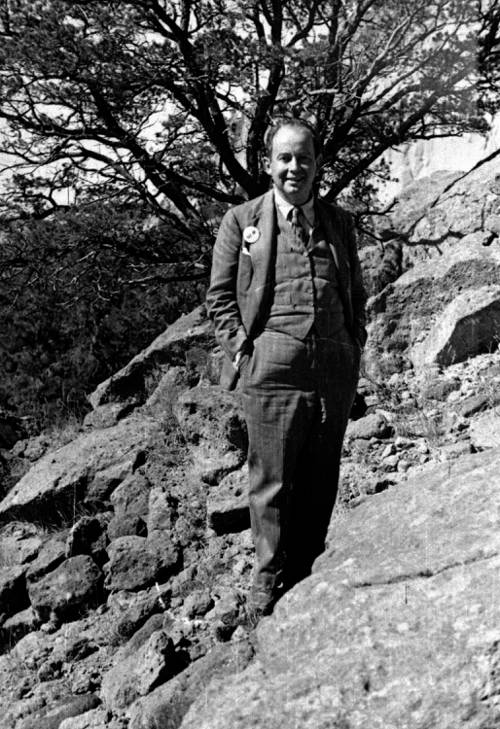
FAQ About John von Neumann

Who was John von Neumann?
John von Neumann was a Hungarian-American mathematician, physicist, and polymath who made significant contributions to many fields, including quantum mechanics, computer science, and economics. He is widely regarded as one of the foremost mathematicians of the 20th century, contributing foundational work that underpins modern science and technology.

What are John von Neumann's contributions to computer science?
John von Neumann made essential contributions to computer science, most notably the Von Neumann architecture. This architecture is a design model for a stored-program digital computer that uses a processing unit and a single separate storage structure to hold both instructions and data. His work laid the foundation for modern computer design.

How did John von Neumann impact quantum mechanics?
John von Neumann contributed to quantum mechanics by formulating the mathematical framework for quantum theory, including the Von Neumann algebra. He also developed the concept of quantum operators and probability theory applied to quantum states, which remain fundamental to the field today.

What is the Von Neumann architecture?
The Von Neumann architecture is a computer design model that describes a system where the data and instructions are stored in the same memory space. This architecture supports sequential processing and is the basis for most modern computers. It contrasts with the Harvard architecture, where the data and instructions are stored separately.

Can you explain John von Neumann's role in game theory?
John von Neumann is one of the founders of game theory, a mathematical framework for analyzing competitive situations where the outcomes depend on the actions of multiple agents. His 1928 paper on "Theory of Games and Economic Behavior," co-authored with Oskar Morgenstern, laid the groundwork for the strategic analysis of games, introducing key concepts such as the minimax theorem.

What is Von Neumann's minimax theorem?
The minimax theorem, formulated by John von Neumann, is a foundational concept in game theory. It states that in zero-sum games with perfect information, there is a strategy that allows a player to minimize the maximum possible loss. Essentially, it ensures the player can secure a guaranteed outcome.

How did John von Neumann contribute to the Manhattan Project?
During World War II, John von Neumann worked on the Manhattan Project, contributing to the development of the atomic bomb. He was involved in the design and analysis of the explosive lenses required to detonate the bomb accurately, applying his expertise in shock wave theory to solve critical engineering problems.

What is Von Neumann's universal constructor?
Von Neumann's universal constructor is a theoretical machine he proposed that could replicate itself and construct other machines. This concept arose from his work on cellular automata and is considered a precursor to the ideas of self-replicating machines and the foundations of artificial life research.

How did John von Neumann influence economic theory?
John von Neumann's work in economic theory primarily involves his contributions to game theory, which has become a crucial tool in economic analysis. His ideas on equilibrium strategies, bargaining, and cooperative behaviors have influenced both theoretical and practical approaches to economics.

Did John von Neumann invent the digital computer?
While John von Neumann did not invent the digital computer, he significantly influenced its development. His design principles and the concept of a stored-program computer with what is now known as the Von Neumann architecture were foundational in shaping modern computer systems.

What was John von Neumann's connection to cellular automata?
John von Neumann was one of the early pioneers in the study of cellular automata, a model for systems to evolve over discrete time steps according to specified rules. He envisioned using these automata to create self-replicating machines, contributing significantly to the computational theory.

Where did John von Neumann receive his education?
John von Neumann studied at the Lutheran High School in Budapest, and he later went on to earn a Diploma in Chemical Engineering from ETH Zurich in 1925. He also received a Ph.D. in Mathematics from the University of Budapest in 1926.

Which institutions did John von Neumann work for during his career?
John von Neumann held positions at several prestigious institutions, including Princeton University and the Institute for Advanced Study. He was also involved with the Manhattan Project during World War II and worked for Los Alamos National Laboratory.

Was John von Neumann involved in artificial intelligence?
While John von Neumann did not directly work on artificial intelligence, his work laid the foundation for various computational models and logical processes essential to AI research. His theoretical frameworks and discussions on machine learning and automata theory have influenced AI development.

What is Von Neumann's impact on modern technology?
John von Neumann's impact on modern technology is immense, as he helped establish foundational principles in computer science, digital computing, and systems theory. His theories and models continue to influence the development of computing systems, algorithms, and even economic models today.

Did John von Neumann receive any notable awards?
John von Neumann received numerous awards and recognitions for his work, including the Medal for Merit from the U.S. President in 1947 for his contributions during World War II. Moreover, he was a member of several scientific societies, such as the National Academy of Sciences and the American Academy of Arts and Sciences.

What languages could John von Neumann speak?
John von Neumann was multilingual. He spoke Hungarian, his native language, and was also proficient in German, English, and French. His linguistic skills aided his academic and professional collaborations across Europe and the United States.

What were John von Neumann's contributions to set theory?
John von Neumann contributed to set theory by developing the Von Neumann-Bernays-Gödel set theory, which expanded Zermelo's set theory with classes in addition to sets. This work helped resolve paradoxes and inconsistencies in early set theory and remains influential in mathematical logic.

Did John von Neumann have any famous contemporaries?
John von Neumann had several famous contemporaries, including Albert Einstein, with whom he worked at the Institute for Advanced Study in Princeton. He also interacted with notable scientists like Alan Turing and Robert Oppenheimer during his career, frequently collaborating on pioneering scientific research.

What was John von Neumann's philosophy on mathematics and science?
John von Neumann believed in the mathematical formalization of scientific concepts, advocating that mathematics provides a precise language for the expression and development of theoretical sciences. His work consistently attempted to unify scientific concepts with mathematical theory.
